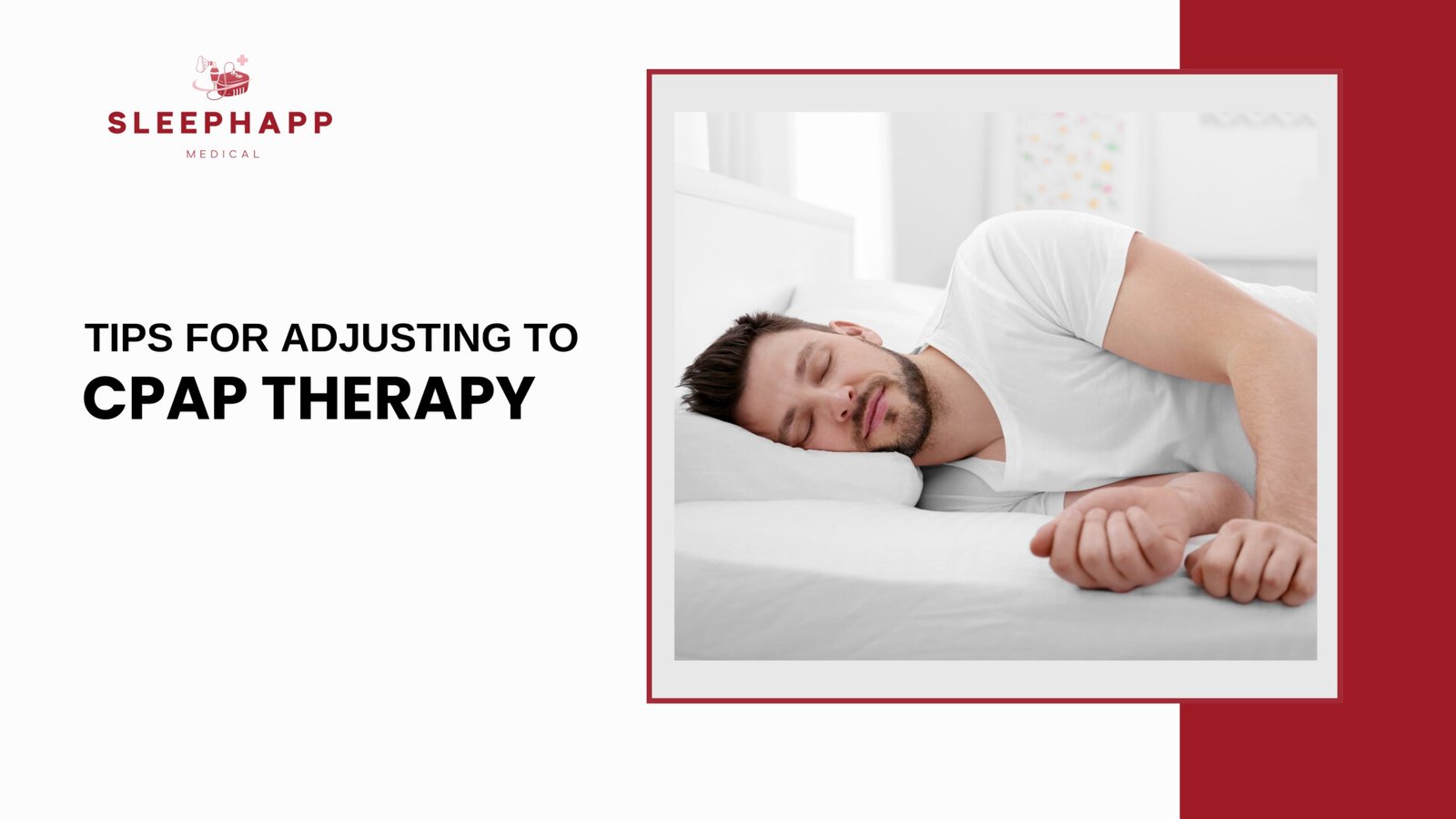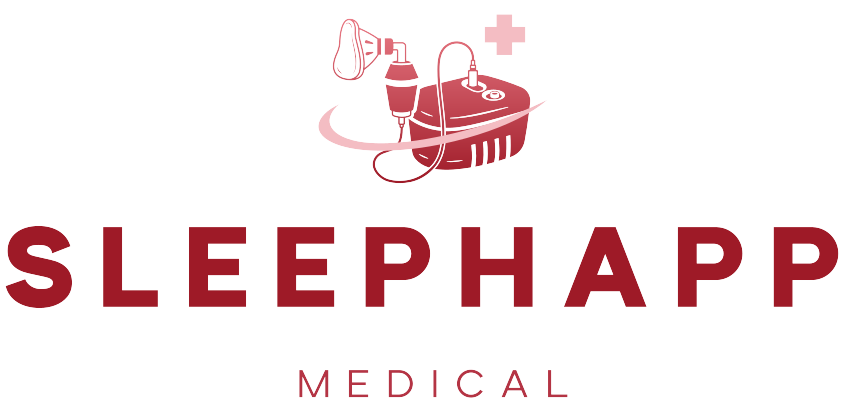Tips for Adjusting to CPAP Therapy – Making Your First Nights Easier
Home » Tips for Adjusting to CPAP Therapy – Making Your First Nights Easier

Table of Contents
Starting CPAP therapy can feel hard at first. But with the right steps, you can make it easier. Focus on comfort, routine, and small changes to improve your experience. Here are some simple tips to help you get used to your CPAP machine for better sleep and long-term success.
Get Comfortable with Your Mask
It is important to adjust to your CPAP mask. Wear it during the day while reading or watching TV. This helps you get used to it without needing to sleep. Make sure it fits well but is not too tight. A tight mask can cause discomfort and air leaks. Adjust the straps while lying in your sleep position. The more you wear it during the day, the easier it will be at night.
Ensure a Proper Mask Fit and Address Air Leaks
A good-fitting mask is important for CPAP therapy to work well. It is less effective if the mask is overly loose since air could flow from it. If it is very tight, your skin may get irritated and damaged. Finely change the straps to ensure the mask fits snugly but not overly tight. Try another mask style or size if the air still leaks. Some folks would rather use full-face masks or nasal pillows. Try different options until you find the best and most comfortable fit.
Use CPAP-Friendly Accessories
Regular pillows might make sleeping difficult by pushing on your CPAP mask. A CPAP pillow lets you sleep better by allowing the mask and tubing room. Mask strap liners stop skin irritation and help ease pressure on the face. A cushion liner will also help if your mask seems overly tight or harsh. Little adjustments help make CPAP treatment more pleasant.
Ease Into CPAP Use
If using your CPAP feels hard, start slow. Wear the mask for short times during the day while resting. This helps you get used to it and feel less worried at night. Try using it for naps first. Then, move to wearing it all night. With time, your body will adjust. CPAP will feel more natural, and sleeping will be easier.
Develop a Relaxing Bedtime Routine
A good evening ritual aids in relaxation and improved sleep. Do calming activities like warm baths, reading, or practising mindfulness. Stay away from screens and bright lights before bed. They can prevent your body from producing melatonin, which facilitates sleep. Try deep breathing or muscular relaxation if using a CPAP causes you anxiety. Sleeping with the machine is easier when one is calm. For more relaxation techniques, visit this.
Maintain Good Sleep Hygiene
Make your bedroom good for sleep. Keep it cool, dark, and quiet. Use blackout curtains to block light. Choose soft, breathable bedding. Avoid caffeine and heavy meals before bed. These can disturb your sleep. Good sleep habits help you sleep better and adjust to CPAP therapy.
Adjust Your Sleeping Position with CPAP
How you sleep affects CPAP therapy. Sleeping on your back can make sleep apnea worse. This may increase air pressure needs. Try sleeping on your side instead. It helps keep your airway open and reduces machine work. Use a body pillow if staying on your side is hard. Small changes can improve comfort and treatment.
Use the Ramp Feature on Your Machine
Many CPAP machines have a ramp feature. This feature slowly increases air pressure to the right level, letting you start with lower pressure and making it easier to sleep. Over time, you will get used to CPAP therapy, and the pressure increase will feel normal. If the airflow feels too strong at first, use the ramp feature. It will make breathing more comfortable.
Practice Breathing Techniques
Breathing exercises will help you relax and get used to the CPAP mask. Deep breathing, muscular relaxation, and guided imagery help reduce stress and enhance sleep. Before bed, practice them to facilitate CPAP therapy and speed up your falling asleep. For more Tips for a Better Night’s Sleep with CPAP Therapy, visit this.
Stay Consistent with Your Therapy
Keep using your CPAP machine every night. It may feel uncomfortable initially, but skipping nights makes adjusting harder. Regular use helps your body get used to it, and it will feel normal over time. If you have discomfort, talk to your doctor or equipment provider.
Getting used to CPAP therapy can be hard. But these tips can help. A new routine takes time to feel normal. CPAP therapy is important, so be patient. If you have trouble, ask your doctor or a sleep expert for help. With effort and the right steps, you can sleep better and stay healthier.
Sources:
- https://www.mayoclinic.org/diseases-conditions/sleep-apnea/in-depth/cpap/art-20044164
- https://my.clevelandclinic.org/health/treatments/22043-cpap-machine
- https://www.apria.com/home-healthcare-insights/tips-for-a-better-nights-sleep-with-cpap-therapy
- https://www.health.harvard.edu/mind-and-mood/six-relaxation-techniques-to-reduce-stress
